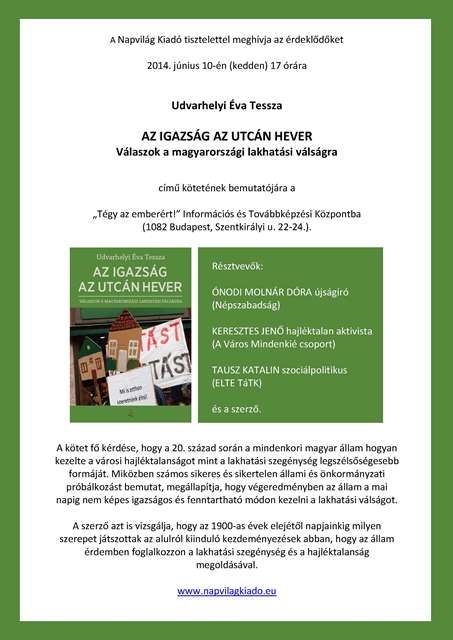Interkulturális élmények Mumbaiban
2014.11.13. 12:37
A Közélet Iskolája egyik alapítójaként 2014 szeptemberében lehetőségem nyílt Mumbaiba (India) látogatni 10 napra. Az út elsődleges célja a városban működő civil szervezetek és mozgalmak megismerése volt, hogy tanulhassunk tevékenységeikről, munkamódszereikről, eredményeikről. A szervezeteknél tett látogatásaink tanulságairól a Közélet Iskolája honlapján írunk Dósa Mariannal. Ebben az írásban az utazásról a Mumbaiban tapasztalt kulturális különbségek szempontjából számolok be. A beszámoló tagadhatatlanul szubjektív (hogyan is lehetne más?!), hiszen csak azokról a dolgokról írok, amik nekem furcsának tűntek, megleptek vagy egyszerűen csak feltűntek nekem kelet-európaiként egy átalakulóban lévő 20 milliós multikulturális ázsiai városban.
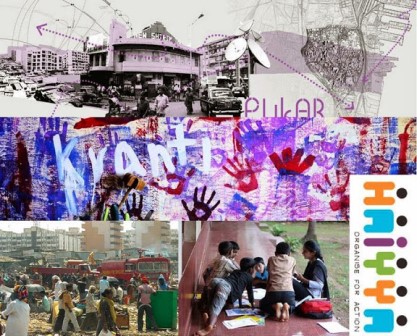
Tedd magad szabaddá! Tüntetés a levegőből
2014.10.27. 09:39
Tedd magad szabaddá! - Tüntetés a levegőből from atlatszo.hu on Vimeo.
Pathfinders: Living their dream
2014.10.11. 22:51
Casual conversations with people who took the road less travelled, and succeeded. Find out how they follow their dreams, and still afford to eat. The first part of the program will be questions and answers with the guest and host. Then, questions from the audience are welcome and encouraged!

Tuesday, October 14, 2014. Tessza Udvarhelyi, World Changer
Angol, na? Brody Sandor utca 30/a, Budapest, Hungary, 1088
Entrance is free!
Chairs limited, so reserve a place if you don’t want to risk standing.
Hajléktalankérdés a politikában - A Friedrich Ebert Stiftung és a Political Capital Institute közös konferenciája
2014.09.17. 12:27
10:00 – 11:15 A hajléktalanok életkörülményei és a hajléktalanokkal kapcsolatos társadalmi attitűdök – civil válaszok a hajléktalankérdés kezelésére
Fekete-Nagy Miklós, aktivista, A Város Mindenkié
Győri Péter, kuratóriumi elnök, Menhely Alapítvány
Hann Endre, ügyvezető igazgató, Medián
Kende Anna, egyetemi docens, ELTE PPK
Udvarhelyi Tessza, kulturális antropológus
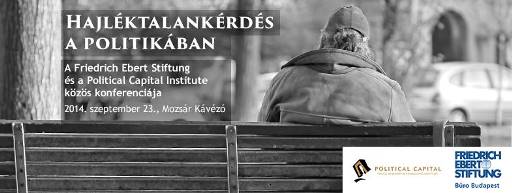
Helyszín: Mozsár Kávézó, (1065 Budapest, Nagymező u. 21.)
Időpont: 2014. szeptember 23. 9:30-13:30
Nyelv: A konferencia magyar nyelven zajlik, de angol nyelven szinkrontolmácsolást biztosítunk.
A részvétel előzetes regisztrációhoz kötött. Részvételi szándékát 2014. szeptember 19-ig tudja jelezni a konferencia@politicalcapital.hu e-mail címen.
„Mikor van itt a tettek ideje, ha nem ilyenkor?!” Szerveződés a lakhatási jogokért Magyarországon – történeti áttekintés
2014.09.06. 20:07
A Dinamó Műhely sorozatban jelenteti meg az "Igazság az utcán hever" című könyvem egyik fejezetét a magyarországi lakhatási mozgalmak rendszerváltás előtti történetéről.
A cikkek itt olvashatók:
A rendbontástól a képviseletig: bérlőmozgalom az 1900-as évek elején
Küzdelem a túlélésért: kunyhólakók az 1920-as és ’30-as években
„Hová mennek? Hát az Abonyi utcába lakást szerezni” - Ellenállás az államszocializmus idején
Mi is emberek vagyunk - Hajléktalan-aktivizmus a rendszerváltás környékén
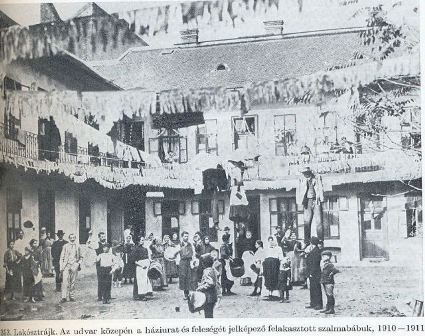
A vikingek láncos kutyái – civilként a tekintélyelvű állam ellen
2014.08.22. 10:47
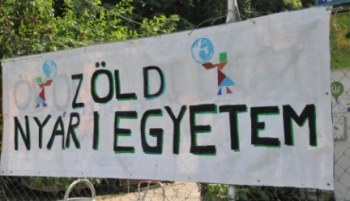 Az újraválasztott Fidesz-kormány egyik első intézkedéseként frontális támadást intézett az utolsó független civil szervezetek és kezdeményezések ellen, amelyek célja az átlátható állam megteremtése, autonóm kulturális projektek létrehozása, vagy fenntarthatóság.
Az újraválasztott Fidesz-kormány egyik első intézkedéseként frontális támadást intézett az utolsó független civil szervezetek és kezdeményezések ellen, amelyek célja az átlátható állam megteremtése, autonóm kulturális projektek létrehozása, vagy fenntarthatóság.
Mégis, hogyan képesek ezek a kezdeményezések megőrizni függetlenségüket, és tovább végezni értékes munkájukat? Milyen eszközök állnak (még) az ellenzék rendelkezésére ebben az egyre kevésbé demokratikus rendszerben? Hogyan lehet szélesebb társadalmi bázist teremteni a demokrácia és a társadalmi igazságosság ügyének? A záró plenárison beszélünk az ellenállás lehetséges módjairól, vendégeink tapasztalt civil aktivisták lesznek.
Előadók: Bodoky Tamás, Misetics Bálint, Udvarhelyi Tessza
Moderátor: Vágó Gábor
Mikor? 2014. augusztus 24. 10.30-12.30h
Hol? 7. Zöld Nyári Egyetem
Report from the My City Real World conference
2014.07.23. 06:00
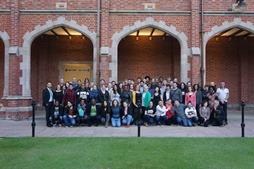 As a representative of The City is for All, I attended My City Real World, a conference organized in Belfast, Northern Ireland between June 26 and 28, 2014. Dozens of activists from various countries from Spain through Kenya and the United States to Brazil were present at the event. The topic was ethnic profiling, or the practice of the police to stop, check and search people with certain ethnic features.
As a representative of The City is for All, I attended My City Real World, a conference organized in Belfast, Northern Ireland between June 26 and 28, 2014. Dozens of activists from various countries from Spain through Kenya and the United States to Brazil were present at the event. The topic was ethnic profiling, or the practice of the police to stop, check and search people with certain ethnic features.
All the activists, volunteers and lawyers who participated in the conference work with organizations and movements that struggle for social justice and fight against police discrimination, violence and racism. In Hungary, the topic of ethnic profiling has been best addressed by the Helsinki Committee, while our group, The City is for All focuses on discrimination based on social status and class.
In 2011-2012, The City is for All completed Justice on the Streets, a study that confirmed the personal experiences of our homeless activists. Based on our survey with 400 street homeless people, it turned out that 59% of respondents had been subjected to some sort of police action within 30 days prior to the survey. A third of those who were stopped by the police experienced this more than four times, which means that the police stopped and ID’d them at least once a week. To illustrate the discriminatory nature of this situation: the non-homeless/middle-class members of The City is for All have not been stopped by the police for any reason for the past few years. Since the publication of our survey results, we have tried to address this issue in many ways including writing articles, compiling and distributing infographics and organizing a round-table discussion with the representative of the Budapest Police Department among others. We have also tried to create a closer collaboration with both the police and the national ambulance services – thus far with little success. We decided to attend the My City Real World conference because we are really interested in how other countries experience racial and class-based profiling and would like to learn about good practices, techniques, and methods for fighting against it.
Egy könyv margójára...
2014.07.21. 01:13
Olvastam egy könyvet. Egy könyvet, mely mostanában jelent meg és már a bemutatón felkeltette érdeklődésemet. Egy könyvet, ami a társadalom egyik legfontosabb problémájára hívja fel a figyelmet, ami az aktivista munkámról, és ami személy szerint rólam is szól. Egy könyvet, mely visszavezet a múltba, végigköveti a jelent, feltárja a szegénység és hajléktalansághoz vezető okokat és pontos képet ad az uralkodó hatalomnak az igazságról. Ez a könyv címe is: AZ IGAZSÁG AZ UTCÁN HEVER.
Udvarhelyi Tessza antropológus azt a témát ragadta meg disszertációjának megvédésében, ami nagyon sok kérdést vet fel, rengeteg ellenvetést szül, képet ad a téma eltérő nézeteiről. Ki és hogyan látja ? Erről ír antropológus szemmel Udvarhelyi Tessza, feltárva a politikai hatalom érdemi megoldást elutasító és rendészeti eszközökkel szabályozó tiltásait, a városvezetés szakmai tudás nélküli, megalázó rendeleteit, a többségi társadalom közönyét vagy elutasítását a problémával szemben, az ellátórendszer hibáit a kiállás, a segítségnyújtás terén.
Udvarhelyi Tessza a hajléktalan emberek életéről ír. Arról ír, milyen kirekesztésben van részünk csupán azért, mert fedél nélkül élünk. Arról ír, hogy hogyan szabályozzák különböző tiltó rendeletekkel az egész - amúgy is nyomorúságos - életünket, hogyan aláznak meg emberi jogainkban minket. Az írónő ismerteti a múltat és a mai magyar valóságot tárja fel, a rengeteg munkát és tapasztalatot igénylő kutatásai alapján. És ír a megoldások lehetőségeiről. Ír a szociális bérlakások hiányáról, a nagy számú üres lakásokról és azok hasznosításának lehetőségeiről, azokról a támogatási módszerekről, amelyek segíthetnének megőrizni a lakhatást, és megelőzhetnék a hajléktalanságot, ha...
(In)justice on the streets: The long housing crisis in Hungary from above and below
2014.07.15. 06:00
Hungary today is the only country in the world that has encoded in its constitution the possibility of penalizing homelessness in public spaces. The intensity of criminalization of homelessness in recent years has given rise to a tug-of-war between the ruling party and grassroots activists. This dissertation explores the politics of homelessness in Budapest from three interlocking perspectives, drawing on primary historical sources, social science literature in English and Hungarian, the secondary analysis of a participatory action research project as well as the author’s experiences as a housing rights activist. It will first examine how the state has addressed homelessness as the most extreme manifestation of a severe lack of affordable housing, or “housing poverty,” throughout the 20th century. While the dissertation sheds light on a number of attempts by the state to intervene, it ultimately demonstrates public authorities’ failure to appropriately address the prolonged housing crisis. Second, the dissertation illuminates the role of grassroots efforts in shaping public responses to housing poverty and homelessness from the early 1900s to the present. Revealing a long and largely unknown history of citizen activism for housing and dignity, the dissertation points out the fragmented nature of these struggles and argues for the need to develop more sustained strategic organizing to achieve housing justice.
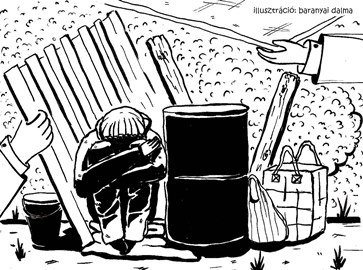
Thirdly, the dissertation discusses the role of social scientists in advancing progressive social transformation, especially in the field of housing rights, by examining ethnography from below and participatory action research as two different, but equally valuable approaches to engaged social science. In a broader context, while the dissertation identifies moral exclusion as the cultural-ideological underpinning of penal approaches to poverty, it argues that the radical rise of the criminal paradigm is a symptom of a larger social, political and economic crisis of the post-socialist Hungarian state. In terms of new directions, the dissertation identifies the current dominant social construction of homelessness as a major hindrance to challenging the dominant paradigm of management and criminalization. As a result, it argues that a radical redefinition of homelessness is necessary to address housing inadequacy in a just, inclusive and sustainable way.
by Udvarhelyi, Eva Tessza, Ph.D., CITY UNIVERSITY OF NEW YORK
You can download the full dissertation here
Justice on the Streets - The production of critical knowledge through participatory action research with homeless people in Budapest
2014.07.11. 15:12
With knowledge and power so intimately tied together, research and documentation can easily turn into technologies of control and exclusion. While the modern state is extremely apt at counting, documenting and categorizing its residents, it is also able to enforce certain expectations towards its citizens through a request for proper documentation. In today’s Hungary, the state has a vast knowledge about people who are homeless through various forms of registration. At the same time, being properly documented is essential for homeless people to access necessary services and maintain their links to the body politic. By contrast, homeless people are rarely in a position either to get to know the state’s operations in detail or set expectations towards the state and its representatives.
Justice on the Streets, a participatory action research (PAR) project undertaken by homeless and housed members of The City is for All (AVM), a homeless rights advocacy group in Budapest, represents an attempt at bridging this huge inequality in knowledge and power by documenting the behavior of the state from the perspective of street homeless people. In this paper, I use the concept of deep participation to examine the collective process of critical reflection and knowledge production in PAR. More specifically, I analyze the unfolding of deep participation in Justice on the Streets from the perspective of 1) the development of critical consciousness, 2) the dynamics of participation in a cross-class context, and 3) the deconstruction of power and inequality at both the micro and macro levels.
by Éva Tessza Udvarhelyi
Az igazság az utcán hever - beszámoló Udvarhelyi Éva Tessza könyvének bemutatójáról
2014.07.01. 14:24
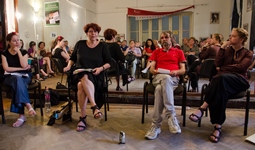 2014. június 10-én a Szentkirályi utcában a „Tégy az emberért” Információs-és Továbbképzési Központban került sor Udvarhelyi Éva Tessza (a továbbiakban Tessza) "Az igazság az utcán hever" című könyvének bemutatására. A szerző kulturális antropológus, doktori fokozatot 2013-ban szerzett az Egyesült Államokban. Tudományos munkássága mellet az A Város Mindenkié csoport egyik alapítója és aktív tagja, mely csoport alapvető feladata a hajléktalan emberek jogainak és érdekeinek védelme.
2014. június 10-én a Szentkirályi utcában a „Tégy az emberért” Információs-és Továbbképzési Központban került sor Udvarhelyi Éva Tessza (a továbbiakban Tessza) "Az igazság az utcán hever" című könyvének bemutatására. A szerző kulturális antropológus, doktori fokozatot 2013-ban szerzett az Egyesült Államokban. Tudományos munkássága mellet az A Város Mindenkié csoport egyik alapítója és aktív tagja, mely csoport alapvető feladata a hajléktalan emberek jogainak és érdekeinek védelme.




